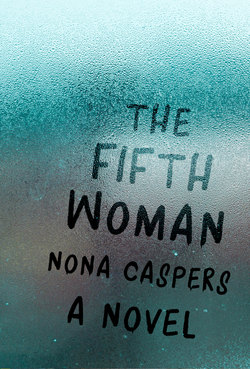Читать книгу The Fifth Woman - Nona Caspers - Страница 13
На сайте Литреса книга снята с продажи.
ОглавлениеTHE PHONE CALL
Every few months, when I lived in the apartment over the alley, I called my mother. Always on a Saturday or Sunday afternoon, more often in the summer and on warmer days, when I was home from grocery shopping or had finished cleaning my two rooms. We talked about the weather where I lived and the weather where she lived, though the weather where I lived was often the same, sunny or foggy, or sunny post-fog, or sunny with wind. The weather where she lived was more dramatic so we talked about it a lot. Storms with lightning and thunder, sheets of snow, icy rains, winds that blew things down, like an apple tree in the backyard and a piece of gutter from the roof.
Once, when I called, she was soaking a frostbitten finger in tepid water. Another time she was out of breath from ripping up basement carpet that had molded due to humidity.
After the weather, we would talk about the people in the town, or the people living outside of town whom we both knew. Sometimes she told me sad stories about people I did not remember or perhaps had never met. I liked the sound of her voice, and I liked hearing the details of other people’s lives, people wounded in hunting accidents or run over by farm machinery or their children run over or somehow damaged by farm machinery.
The stories were often harsh. But my mother told them gently. She always said, at the end, “Isn’t that sad?” And she asked me to pray for so-and-so, and I said I would, even though I knew I wouldn’t because I didn’t know how. Sometimes I would stand in my living room and shut my eyes and say in my mind, I wish you all the best, or, I wish you a good day. If I was passing a church in the City, I would step inside and light a candle, or I would see a candle while seated at a table in a restaurant, and I would suddenly remember a story my mother had told me.
I was confused about what to ask for. Happiness seemed too large, given that they had lost limbs or children, or their children had lost limbs, or they had cancer. Once, in a church, I kneeled in front of a statue of some saint or other, the one with the little dog, and I folded my hands and said a Hail Mary.
About my life, in my little apartment in the City, I said very little. “How is your thesis going?” she asked several times. It was going well, I told her, it was always going well, and sometimes this was true, and sometimes it was almost true. More often it was not true.
One day, toward the end of my stay in the building, when the thesis was almost finished and had indeed gone well, though I didn’t know that yet, I called her early on a Monday morning. Her voice sounded different, fainter, and further away. She sounded puzzled.
“Is this you?” she asked several times.
“Yes, of course it’s me,” I said.
“Are you OK?” she asked several times. “It’s Monday morning, you have to go to work.”
She was right about that.
I told her I was not OK, but then, at the sound of her breathing, I took it back and said I was kidding, I was just a little tired.
Her voice remained faint and far away. There was the sound of her house barring the wind and the sound of my two rooms cloistered in fog. And then, the beginning of an even longer silence.
